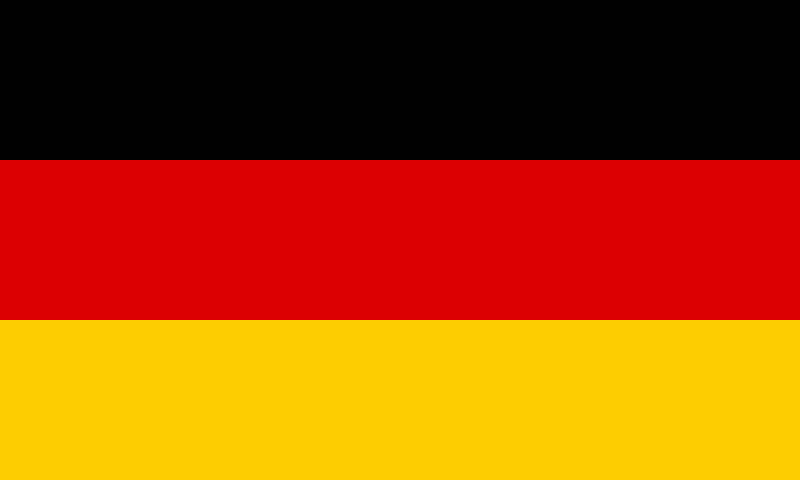Germany - statistical data
Germany is a country located in central Europe, bordered by nine other countries including France, Poland, and Austria. It has a total land area of 357,022 square kilometers, making it the seventh largest country in Europe. The landscape of Germany is diverse, with the northern regions characterized by flat plains and the southern regions dominated by the Alps mountain range.
With a population of over 83 million people, Germany is the most populous country in the European Union. The population is predominantly urban, with around 75% of people living in cities and towns. The country has a high standard of living and a strong economy, making it an attractive destination for immigrants and expatriates.
Land of Germany
Germany is a land of rich history and cultural heritage. From the medieval castles of Bavaria to the modern skyscrapers of Frankfurt, the country is a fascinating blend of old and new. Germany is also known for its contributions to science and technology, with renowned universities and research institutions leading the way in fields such as engineering and medicine.
One of the most striking features of Germany is its diverse landscapes, ranging from the rolling hills of the Black Forest to the rugged beauty of the Alps. This variety of terrain provides a wealth of opportunities for outdoor activities, from hiking and skiing to cycling and water sports. The country is also home to a number of national parks and nature reserves, ensuring that its natural beauty is preserved for future generations to enjoy.
In addition to its natural and cultural attractions, Germany is also a hub of economic activity. With a highly skilled workforce and a strong industrial base, the country is a powerhouse in sectors such as automotive manufacturing, pharmaceuticals, and renewable energy. As a result, Germany is not only a popular destination for tourists, but also a thriving center of innovation and commerce.
Climate of Germany
Germany experiences a temperate climate characterized by mild winters and warm summers. The country is influenced by the Atlantic Ocean, which brings relatively moderate temperatures throughout the year. The northern regions of Germany tend to be cooler and receive more precipitation, while the southern regions experience slightly warmer temperatures. The climate is also influenced by the surrounding mountain ranges, such as the Alps in the south and the Harz Mountains in the central region.
The seasonal variations in Germany are distinct, with cold winters and warm summers. The average temperature in January, the coldest month, ranges from 0 to 3 degrees Celsius, while in July, the warmest month, temperatures can reach up to 22 degrees Celsius. The country also experiences a fair amount of rainfall, particularly in the western regions. Overall, the climate of Germany is conducive to a variety of outdoor activities and contributes to the country's lush landscapes and diverse ecosystems.
Languages of Germany
Germany is a country known for its rich linguistic diversity. The official language of Germany is German, which is spoken by the majority of the population. However, there are also several regional dialects and minority languages spoken throughout the country. These include Low German, Bavarian, and Frisian, among others. In addition, Germany is home to a significant immigrant population, leading to the presence of languages such as Turkish, Arabic, and Russian in certain communities.
The linguistic landscape of Germany is further enriched by the presence of indigenous languages such as Sorbian, which are spoken by small communities in certain regions of the country. These languages are protected under the European Charter for Regional or Minority Languages, highlighting Germany's commitment to linguistic diversity and cultural heritage. Overall, the languages of Germany reflect the country's complex history and diverse population, making it a fascinating case study for linguists and sociolinguists alike.
Demographic trends
Germany is currently experiencing several key demographic trends that are shaping the country's population composition. One of the most significant trends is the aging population, with a decreasing birth rate and increasing life expectancy leading to a larger proportion of elderly individuals. This demographic shift is expected to have wide-ranging impacts on areas such as healthcare, pension systems, and labor force participation.
Another important trend in Germany is the increasing cultural diversity of the population, driven by immigration and the integration of refugees. This diversity is reflected in the growing number of foreign-born residents and their descendants, as well as in the increasing number of multicultural households. As Germany continues to attract immigrants for economic and humanitarian reasons, the country's demographic landscape is becoming more varied and complex.
Overall, these demographic trends are reshaping the social, economic, and political dynamics of Germany. Policymakers and researchers are closely monitoring these trends to better understand their implications and to develop strategies for addressing the challenges and opportunities they present. By studying and adapting to these demographic changes, Germany can better prepare for the future and ensure the well-being of its population.
Germany interesting facts
Germany is a country with a rich history and a diverse culture. Another fascinating aspect of Germany is its language, as it is the most widely spoken native language in Europe.
In addition to its language, Germany is also known for its technological advancements. The country is a leader in engineering and innovation, with famous inventions such as the automobile (by Karl Benz) and the computer (by Konrad Zuse) originating in Germany. Furthermore, Germany is home to the world's largest book fair, the Frankfurt Book Fair, which attracts publishers, authors, and book lovers from around the globe.
Overall, Germany is a country with a fascinating history, culture, and contributions to the world. From its ancient breweries to its modern technological advancements, Germany continues to be a prominent figure on the global stage.
